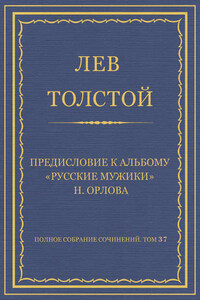CHAPTER I
THE WORLD INTO WHICH DARWIN WAS BORN
Charles Darwin was a great man, and he accomplished a great work. The Newton of biology, he found the science of life a chaotic maze; he left it an orderly system, with a definite plan and a recognisable meaning. Great men are not accidents; great works are not accomplished in a single day. Both are the product of adequate causes. The great man springs from an ancestry competent to produce him; he is the final flower and ultimate outcome of converging hereditary forces, that culminate at last in the full production of his splendid and exceptional personality. The great work which it is his mission to perform in the world is never wholly of his own inception. It also is the last effect of antecedent conditions, the slow result of tendencies and ideas long working unseen or but little noticed beneath the surface of opinion, yet all gradually conspiring together towards the definitive revolution at whose head, in the fulness of time, the as yet unborn genius is destined to place himself. This is especially the case with those extraordinary waves of mental upheaval, one of which gave us the Italian renaissance, and another of which is actually in progress around us at the present day. They have their sources deep down in the past of human thought and human feeling, and they are themselves but the final manifestation of innumerable energies which have long been silently agitating the souls of nations in their profoundest depths.
Thus, every great man may be regarded as possessing two distinct lines of ancestry, physical and spiritual, each of which separately demands elucidation. He owes much in one way to his father and his mother, his grandfathers and his grandmothers, and his remoter progenitors, from some or all of whom he derives, in varying degrees and combinations, the personal qualities whose special interaction constitutes his greatness and his idiosyncrasy; he owes much in another way to his intellectual and moral ancestors, the thinkers and workers who have preceded him in his own department of thought or action, and have made possible in the course of ages the final development of his special revolution or his particular system. Viewed as an individual, he is what he is, with all his powers and faculties and potentialities, in virtue of the brain, the frame, the temperament, the energy he inherits directly from his actual ancestors, paternal and maternal; viewed as a factor or element in a great movement, he is what he is because the movement had succeeded in reaching such and such a point in its progress already without him, and waited only for such and such a grand and commanding personality in order to carry it yet a step further on its course of development.
No man who ever lived would more cordially have recognised these two alternative aspects of the great worker's predetermining causes than Charles Darwin. He knew well that the individual is the direct cumulative product of his physical predecessors, and that he works and is worked upon in innumerable ways by the particular environment into whose midst he is born. Let us see, then, in his own case what were these two main sets of conditioning circumstances which finally led up to the joint production of Charles Darwin, the man and the philosopher, the thinking brain and the moving energy. In other words, what was the state of the science of life at the time when he first began to observe and to speculate; and what was the ancestry which made him be born a person capable of helping it forward at a single bound over its great restricting dogmatic barrier of the fixity of species?
Let us begin, in the first place, by clearing the path beforehand of a popular misconception, so extremely general and almost universal that, unless it be got rid of at the very outset of our sketch, much of the real scope and purport of Darwin's life and work must, of necessity, remain entirely misunderstood by the vast mass of English readers. In the public mind Darwin is, perhaps, most commonly regarded as the discoverer and founder of the evolution hypothesis. Two ideas are usually associated with his name and memory. It is believed that he was the first propounder of the theory which supposes all plant and animal forms to be the result, not of special creation, but of slow modification in pre-existent organisms. It is further and more particularly believed that he was the first propounder of the theory which supposes the descent of man to be traceable from a remote and more or less monkey-like ancestor. Now, as a matter of fact, Darwin was not the prime originator of either of these two great cardinal ideas. Though he held both as part of his organised theory of things, he was not by any means the first or the earliest thinker to hold them or to propound them publicly. Though he gained for them both a far wider and more general acceptance than they had ever before popularly received, he laid no sort of claim himself to originality or proprietorship in either theory. The grand idea which he did really originate was not the idea of 'descent with modification,' but the idea of 'natural selection,' by which agency, as he was the first to prove, definite kinds of plants and animals have been slowly evolved from simpler forms, with definite adaptations to the special circumstances by which they are surrounded. In a word, it was the peculiar glory of Charles Darwin, not to have suggested that all the variety of animal and vegetable life might have been produced by slow modifications in one or more original types, but to have shown the nature of the machinery by which such a result could be actually attained in the practical working out of natural causes. He did not invent the development theory, but he made it believable and comprehensible. He was not, as most people falsely imagine, the Moses of evolutionism, the prime mover in the biological revolution; he was the Joshua who led the world of thinkers and workers into full fruition of that promised land which earlier investigators had but dimly descried from the Pisgah-top of conjectural speculation.












